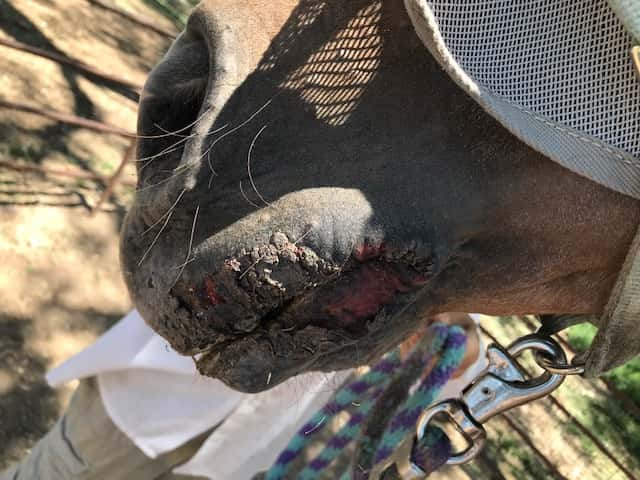Horse owners across the region are being urged to heighten their biosecurity practices as two serious equine diseases; Vesicular Stomatitis Virus (VSV) and Equine Herpesvirus (EHV-1/EHM), continue to spread.
VSV Confirmed in Arizona
USDA has confirmed an outbreak of VSV in Arizona, with all reported cases occurring in horses so far. VSV is a contagious disease primarily transmitted by biting flies and midges, causing blister-like sores around the mouth, nose, hooves, and udder. Early signs include drooling, mouth blisters, fever, and reluctance to eat. Wyoming officials remind producers that VSV is a reportable disease, and any suspected case must be isolated and reported to state animal health authorities immediately.
EHV-1/EHM Outbreak Shutters Events Nationwide
The VSV news comes as the equine industry continues to cope with a growing outbreak of EHV-1 and its neurological form EHM, conditions that have already led to the closure of major rodeos and horse events across the country. Cases have been linked to barrel racing and rodeo events in Texas and Oklahoma, with several equine deaths under investigation.
State veterinarians in South Dakota and North Dakota are urging horse owners to tighten travel precautions, isolate new or returning horses for 21 days, disinfect equipment, and avoid nose-to-nose contact between animals. While EHV-1 does not affect humans or other livestock, it can cause severe respiratory illness, abortions, and sometimes fatal neurologic symptoms in horses.
Vaccines are available for the respiratory and reproductive forms of EHV-1, though not for the neurologic strain, and veterinarians recommend frequent boosters, especially for horses traveling to events.
Officials in multiple states emphasize that prevention starts with keeping sick horses’ home and reporting suspected cases promptly. Organizers of equine events are also being encouraged to develop on-site isolation plans in case of exposure.
With spring travel and competition season approaching, veterinarians say vigilance now is key to keeping herds safe.
####
WYLSB , NDDA, SDAIB – 2025


